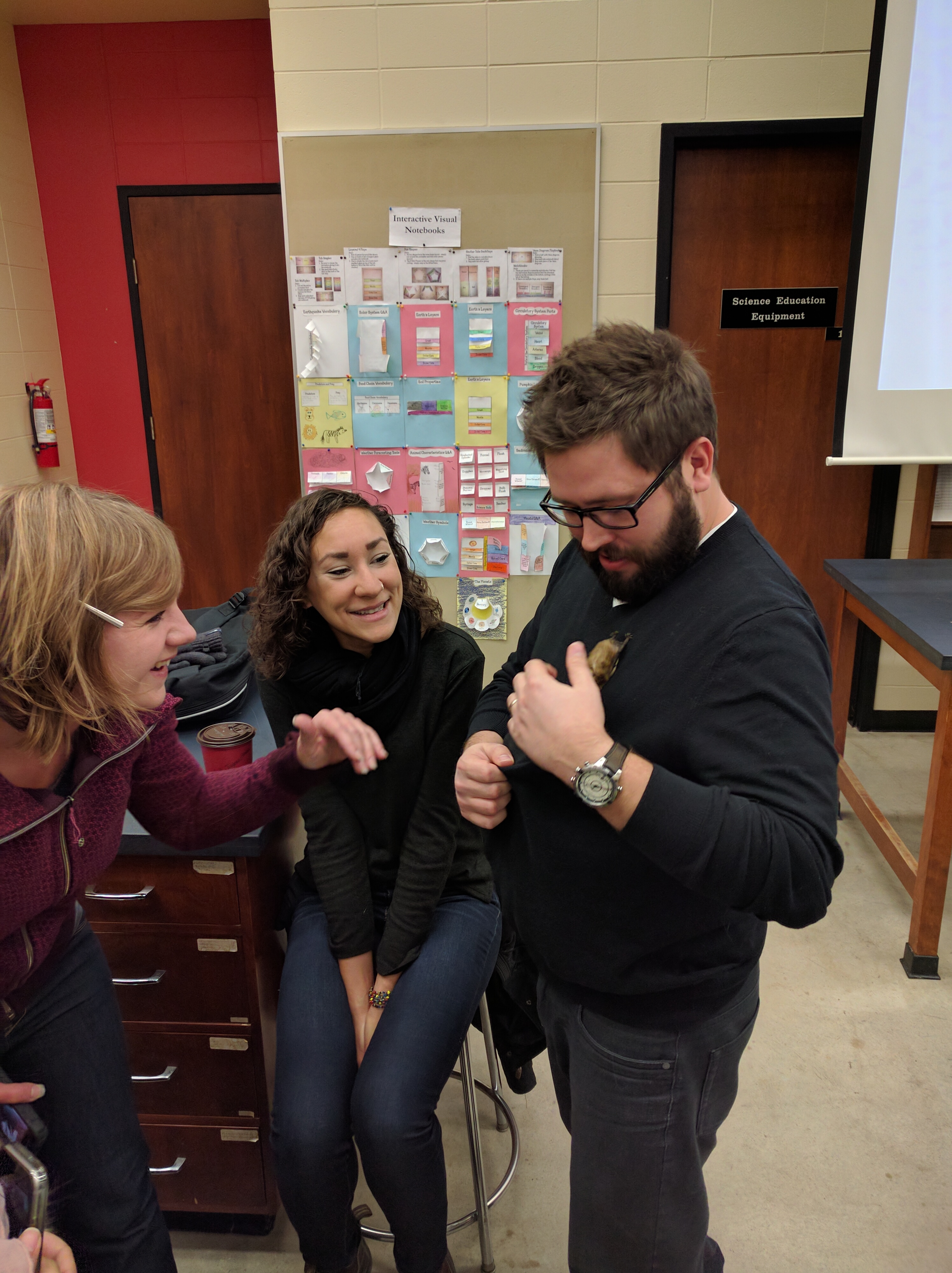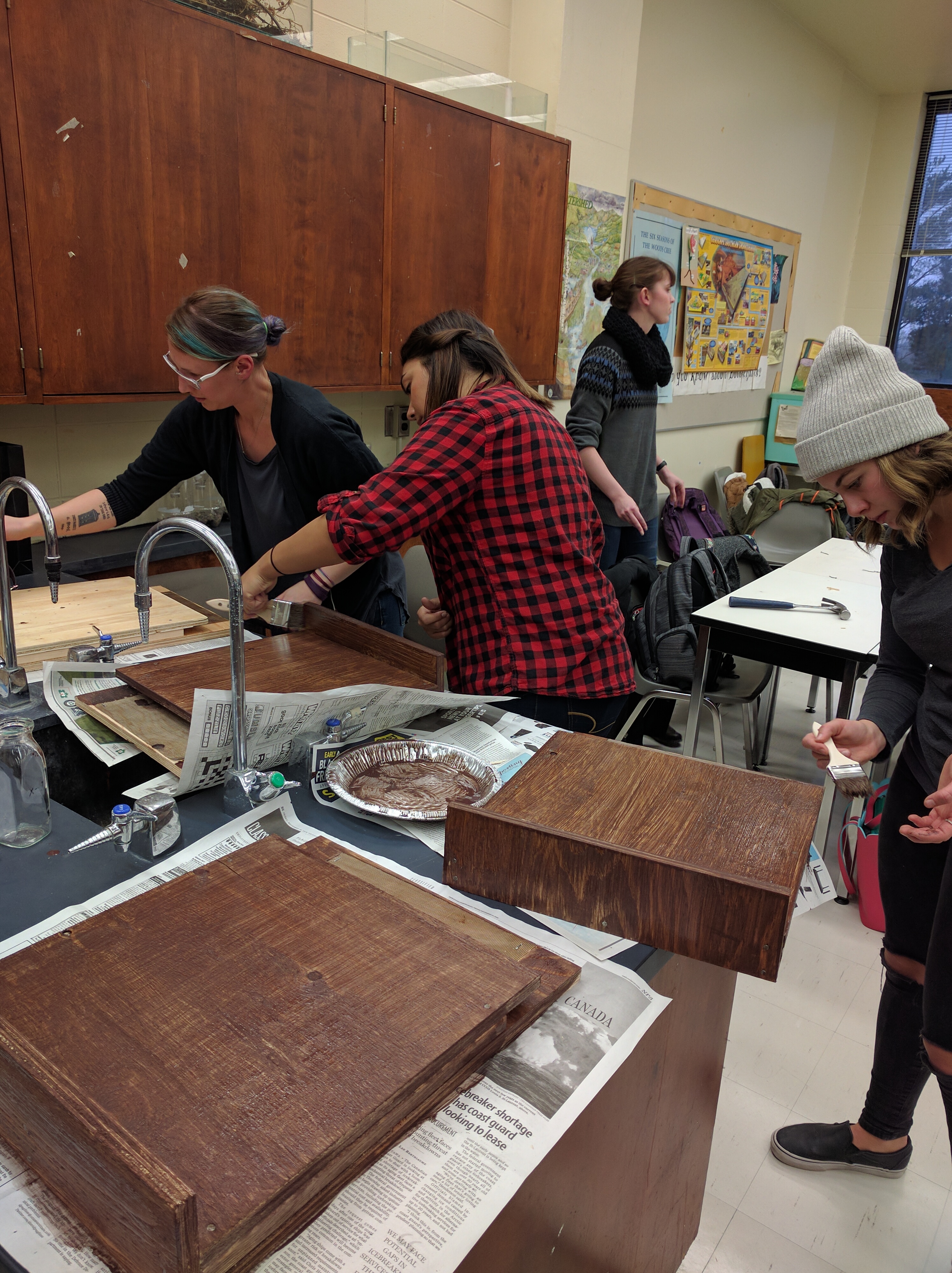Education Students Give Saskatoon Bats a Home for the Holidays
A class of Education students have just put environmental stewardship into practice by providing Saskatoon bats with a selection of comfortable homes.
By Matt WolsfeldOn Monday, Nov. 21 a group of EDUC 313 students traded in their pencils and notebooks for hammers and nails as they spent the afternoon building bat houses. The activity was designed as an exercise in Inquiry-Based pedagogy, a practice which focuses on learning through posing questions and solving problems rather than simply presenting facts.

The class was aided by Kenton Lysak of the Meewasin Valley Authority and Melanie Elliot of the Ecological Education and Ecology Camp for Kids, who provided a hands-on tutorial with materials bought by the U of S Office of Sustainability. Over the course of an afternoon, 50 bat houses were made which will be erected in backyards, along the Meewasin Valley Trail, and across the University of Saskatchewan.
“True to Inquiry-based learning, this idea originated with the students,” says Barbara Mills, instructor with the College of Education. “They took the initiative to consult with university and civic professionals, to apply for funding, and to design a sustainability project that would benefit the Saskatoon community. From beginning to end, the teacher candidates were engaged in the learning process; and it has resulted in a desire to create meaningful, relevant, and relational learning experiences for their own students someday.”

In 2015, Pedagogies of Place classes (such as EDUC 313) were recognized by the United Nations for innovation in Education for Sustainable Development. Through the course, students have learned about bat biology, Saskatchewan ecosystems, and environmental stewardship through activity and self-directed inquiry. The class has also been able to integrate Indigenous content as well as lessons in mathematics, English language arts, ecological literacy, and art education into their projects.
The funding for this project was provided by the U of S Office of Sustainability under its educational grants program. Courses at the University of Saskatchewan are eligible for sustainability funding grants if they desire to pursue meaningful sustainability-gains in their students’ academic careers.
